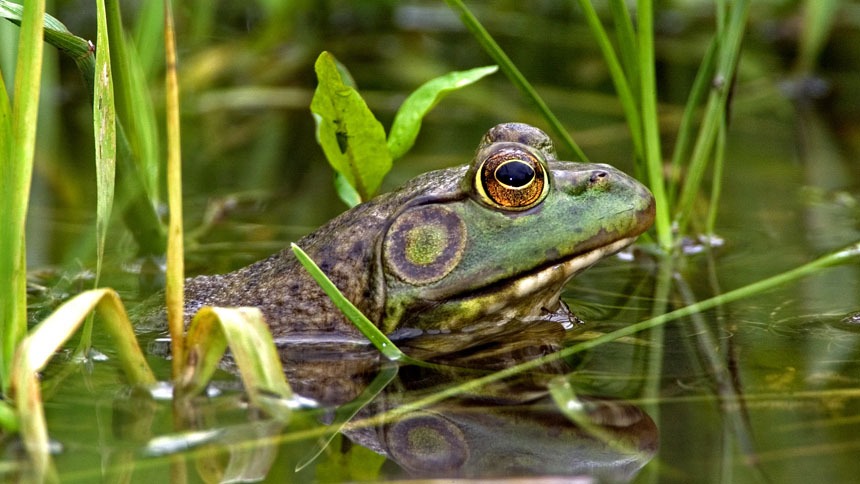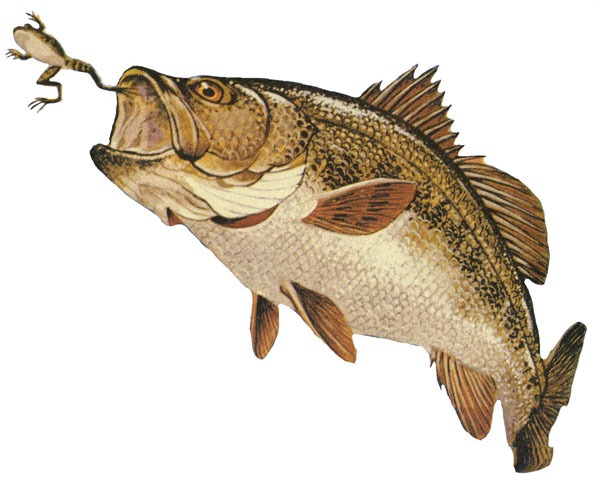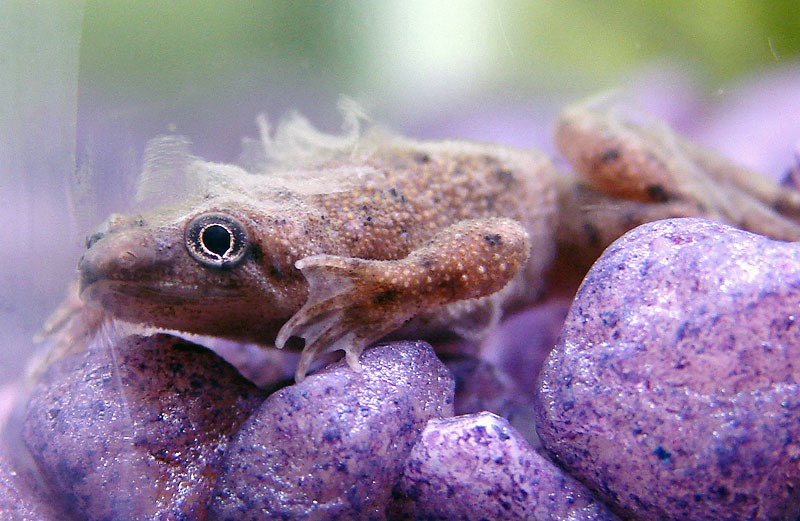
Do Frogs Eat Fish?
Frogs are no picky eaters. Be it insects, worms, small mammals, reptiles, and more – all of these qualify as their food as long as it fits in their mouth. But what about fish?
Well, it depends. Frogs can eat fish that are small enough to fit in their mouth. Of course, bigger fish prey on them, so it’s only wise for them to target smaller ones. This occurs but not as often as they target insects. Most likely, frogs hunt fish when they’re readily available.
In captivity, fish can be part of a frog’s diet. However, it is unusual because it is not practical for more hobbyists to supply fish as a meal. Rather, they would feed these amphibians with live insects such as crickets, worms, lizards, etc.
Page Contents
Frog vs Fish: Who eats who?
One thing is for sure, in the wild, it is survival of the fittest. Hence, animals hunt on each other in order to survive. More importantly, we can tell that the larger the predator is, the smaller the chance of the other animal to survive. Most likely, it will end up as the larger one’s food for the day.
The same goes for fish and frogs. Normally, animals target only those that could easily be hunted. Considering their sizes, the smaller the prey is, the better. For frogs, smaller fish are a good food source. But so are small frogs to big fish.
Related: What Do Frogs Eat?
Big Frog, Little Fish
As mentioned, frogs will eat anything that fits in their mouth as long as it is still alive. FYI, that does not eliminate fish in the list of possible meals.
Frogs large enough to eat fish will do so. One example of which is the American Bullfrog. Being one of the largest bullfrogs in the world, this animal is big enough to eat small fish, including perch or juvenile bass.
Considering its size, it won’t hesitate to eat larger prey, including rodents and smaller reptiles.
Big Fish Eat Little Frogs
Of course, large fish are capable of eating frogs. But do remember – not all fish eat frogs. Some fish in the rivers, like redbelly dace, are known as vegetarians and prefer to feed mainly on aquatic plants or algae.
Commonly, fish that enjoy frogs as their food are mainly predatory. These fish have rows of teeth and powerful jaws that are capable of tearing their prey apart. They are fast and ambush their prey swiftly.

Here are a few of these predatory animals:
- Trout – lake-dwelling trouts, specifically, are more likely to devour frogs than trouts that live in the rivers and streams. Due to the steady or slow-moving water on the lake, it allows them to hunt for food within their habitat and frogs are part of it. Trout have small mouths, too. In accordance with this, they’re only capable of eating what fits in their mouth.
- Channel catfish – this fish loves to hunt frogs in spring, just the right timing after frogs are done hiding in winter and swarm themselves back in the water to reproduce. Moreover, catfish get pretty big and have large mouths. They’re capable of eating most frogs.
- Bass – Both large and small-mouth bass regularly consume frogs. Large-mouth bass are aggressive eaters with a huge mouth. Frogs are certainly on their menu. In fact, there are plastic fishing lures that look like frogs.
Frogs Eating Fish in Captivity
Most hobbyists don’t feed fish to their frogs for two reasons.
One, most frogs aren’t large enough to eat fish. Usually, hobbyists prefer frogs that are smaller in size as compared to ones that are large such as American bullfrogs. In such a case, hobbyists opt for using “feeder insects” like crickets and mealworms.
Two, it is somewhat impractical for hobbyists to feed small fish to their frogs. It’s usually cheaper, faster, and easier to feed crickets or mealworms to amphibians.
Moreover, you need a decent-sized container for enough water to support the life of the fish until the pet frog eats them.
African Dwarf Frogs Eat Fish

If you are considering an aquatic pet frog, African dwarf frogs are the ones for you!
African dwarf frogs are fully aquatic frogs and they are fairly popular pets among frog hobbyists. Taking care of these small aquatic creatures is fairly easy. One might assume, due to their small size, that evenly-sized fish would be good tank mates. But no, don’t let your guards down! This aquatic frog may be small but they are aggressive.
If you are having this idea of putting fish within the same tank of your African dwarf frogs, you might want to reconsider. Unfortunately, they are known for killing and eating “tank mates”, which are other aquatic animals in the same aquarium – like fish. If the fish is approximately the same size or smaller than the African dwarf frog, there is a good chance it will eat it.
But hey, don’t get disappointed. You can still put fish along with frogs within the same tank. There are just a few things to consider. First, to have a happier tank environment for your pets, considering a specific type of fish will do. Approximately, African dwarf frogs grow no more than three inches long.
Even some same-sized fish fall victim to ADFs, but not always. A slightly larger fish will make a better tank mate but do your research first. Not all fish are suitable to share the same waters. Check out our African Dwarf Frog care guide for more information.
Summary
Large frogs are capable of eating smaller fish. Not all frogs do this, however. Many prefer crickets. For hobbyists, it’s usually best to stick to appropriately-sized feeder insects.
As mindful hobbyists, we take into consideration as well the sizes of other animals we want to put in the tank together with frogs. We don’t want your beloved pet ending as a sumptuous meal of bigger fish in the tank.
As a rule, fish the same size as your frogs are the safest ones to accompany them. Though fish are barely a frog’s food source, they could still end up being inside their mouth. Given the fact that they are moving, they could still qualify and be hunted at any moment.

Leave a Reply